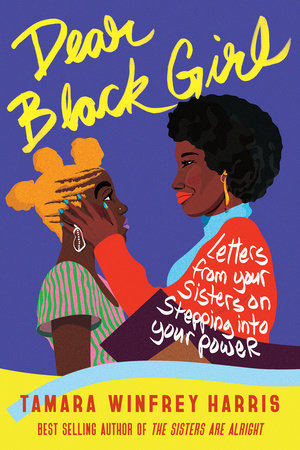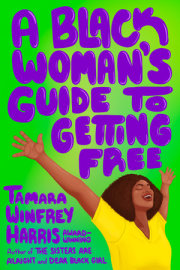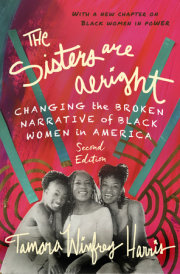“25 Must-Read Books for March” —Good Morning America
“March 2021 Reads for the Rest of Us” —Ms. Magazine
“Ten Hot Reads for March 2021” —Frolic
“Black History Month Essential Reading” —Enspire
“A collection of letters written by Black women to encourage, educate, and uplift Black girls. ‘The world does not value Black girls like it should,’ writes Winfrey Harris. With chapters dedicated to ‘Black Girl Magic,’ family, friendship, mental health, and romantic relationships, the author seeks to rectify the devaluing of Black girls by connecting them with Black women through sage advice focused on meaningful topics. With an eye toward educating and healing, this collection of letters is reinforced by vocabulary words and history lessons necessary for any Black girl to know. It is also a self-affirming workbook prompting readers to supplement the letters and lessons with love letters to themselves. Winfrey Harris highlights the spectrum of Blackness and the Black experience, writing with necessary candor throughout. Beautifully written, the letters often feel like a collection of essays and poems. One standout contribution features the perspective of a ‘transracial adoptee’ writing to other Black girls raised within White families; the author discusses the realities of alienation and the longing for connection. Ultimately, she writes, ‘May you love yourself exactly as you are.’ ‘In Survivor Solidarity’ she speaks to girls who have suffered sexual violence and assault from ‘the other side’ of trauma, reminding them that what happened is not their fault. While many other similar books are how-to guides written by and for other teens, most of which focus primarily on boys, this collection is written by older Black women for younger Black women with the intent to provide vital knowledge, to instruct in how to build a sense of self-worth, and to be passed on from one generation to another. Interspersed throughout the book are sharp ‘Know This’ sidebars, which feature further resources and concrete information on such topics as ‘black name bias,’ ‘radical self-care,’ Planned Parenthood, and the Trevor Project. A valuable combination of encouragement, empowerment, and instruction.”
—Kirkus Reviews (Starred Review)
“Dear Black Girl is for the little Black girls who still need the language to process their magic. In a world that often leaves us with more questions than answers, this book is a literal gift.” —Bassey Ikpi, author of I’m Telling the Truth, but I’m Lying
“Dear Black Girl is the empowering, affirming love letter our girls need to thrive in a world that does not always protect, nurture, or celebrate us.” —Tarana Burke, founder of the Me Too Movement
“This book, a conversation across generations, is a loving, trenchant reminder that Black girls deserve tenderness, care, and the forgiving mirrors that are another Black woman’s eyes.” —Dr. Brittney Cooper, author of Eloquent Rage










